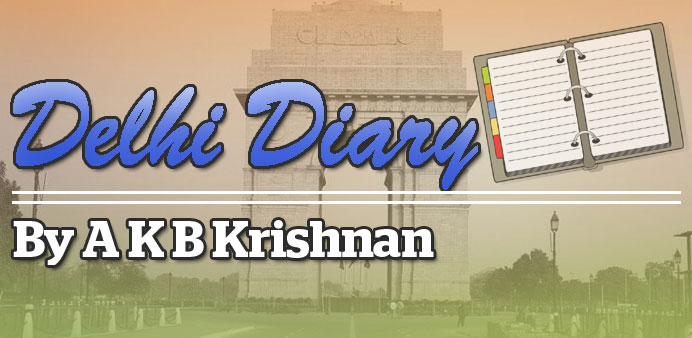“Once a government is committed to the principle of silencing the voice of opposition, it has only one way to go, and that is down the path of increasingly repressive measures, until it becomes a source of terror to all its citizens and creates a country where everyone lives in fear.”
This was the message President Harry S Truman gave the US Congress when it deliberated the question of internal security and the efficacy of censorship in 1950.
Fast forward to India of 2014 and what is the message that Prime Minister Narendra Modi is purportedly giving parliament and the nation at large?
With the brutal strength of 336 MPs in a 543-member Lok Sahba, Modi does not feel the necessity to extend a helping hand, as it were, to the opposition so as to maintain the highest principles of democracy, which is: every issue has two sides to it and if one is represented by the government, the other is by the opposition. Debate, discuss and decide what is best for the country.
A victor - be it in sport, politics or elsewhere - is expected to show a certain degree of magnanimity while dealing with the vanquished. A large heart, in a symbolic sense of course, is essential for harbouring such noble emotions. Modi’s by-now famous 52-inch chest does not seem to hold within it a heart of befitting size.
By denying the Congress Party’s leader in the Lok Sabha Mallikarjun Kharge the status of the Leader of the Opposition, Modi, who otherwise showed compassion - remember the much misunderstood, misinterpreted puppy analogy in an interview to Reuters last year? - seems keen to prove his critics right: that he is more a dictator than a democrat, that he had his way in Gujarat for more than a dozen years and is now seeking to have the same in Delhi and by extension all over India.
If only Modi had been statesmanlike to tell the country that though the Congress did not deserve to have a leader of the opposition from its ranks because of its numerical weakness, he would certainly want one in that position in the larger interest of democracy and, therefore, was happy to concede that post to the largest single party in opposition which in this case happened to be the Congress. He could have further enhanced his stature by letting his countrymen know that Sonia Gandhi’s argument that the Congress was entitled to have the leader of the opposition post for itself was only a vain boast of the vanquished.
Not that denying the chief opposition party the chance of placing a figurehead - for Kharge is nothing but that in the context of the Congress Party where all power flows from just one family - at its top will stifle the opposition voice, if indeed it needed any further stifling.
Moreover, Kharge could not exactly have set the Yamuna on fire with his speeches in parliament. Nor is he known, at least in these parts of the country, for his administrative aptitude. Gandhi wanted another “Yes” man - shades of Manmohan Singh here - in that post, so she found a suitable man in Kharge. On the other hand, it could perhaps have been useful for Modi to have someone like Kharge as leader of the opposition as he could hardly have inspired its ranks and, therefore, possibly do no harm to the government.
But there is a designated role for the Leader of the Opposition for both legislative and substantive issues such as membership in the panel to select the Lokpal, Chief Vigilance Commissioner, the director of the CBI, etc. This will now see new precedents being set, precedents that can one day possibly come to haunt Modi’s BJP more than any other party.
Attorney-General Mukul Rohatgi told the Supreme Court last week that the government was mulling major changes in these institutions. And herein lies the rub.
The latest action by the ruling dispensation deals a severe blow to what could have been a very healthy parliamentary institution. Ever since Modi was declared the BJP’s prime ministerial candidate, the Congress, the Left and a host of others had been crying themselves hoarse that institutional democracy will be under threat if he came to power.
The Congress too had not been a great respecter of institutions either, the emergency being the most glaring example of all. But just because the Congress did it does not mean that Modi should follow the same route. But Modi has explained away some of the more controversial decisions of his government - the abrupt recall/transfer of governors is one example - saying it was only following the precedent set by the Congress. An overactive University Grants Commission, which oversees university education across the country, is trying to worm its way into the affairs of IITs which are totally independent institutions.
These are early days yet but hopefully we are not seeing a trend here. But any attempt “to silence the opposition” by any means other than absolutely good governance - the raison de’tre of Modi’s elevation to prime ministership - will have the consequences that President Truman had warned of more than six decades ago.

